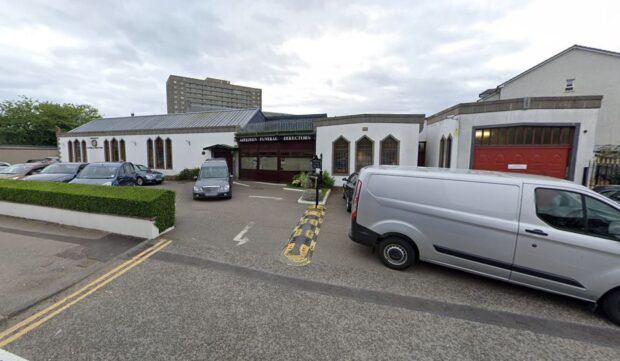An Aberdeen cancer survivor has won £60,000 in compensation after being sacked from a funeral firm during her recovery.
Janie Crampshee began as a trainee funeral director for Aberdeen Funeral Directors in August 2014.
She eventually qualified as a funeral director in 2015 but was diagnosed with cancer the following year.
Undergoing chemotherapy and radiotherapy, Ms Crampshee was unable to return to her role for two years.
By then, the company she worked for had been bought by Dignity, one of the UK’s largest providers of funeral services.
At a hearing in Aberdeen, the details of what happened were laid out – including Ms Crampshee’s treatment on her return to work in 2018.
Initially, she was due to work three days a week for three hours as part of a phased return to work.
In April 2018, an occupational health report confirmed that Ms Crampshee was disabled under the Equality Act 2010 and she was fit to return to work, provided certain adjustments were made, including an extended phased return on amended duties.
However, in May, Ms Crampshee took a “period of long-term absence” caused by stress, according to her doctor. This absence was related to a dispute over pay, among other issues.
In July, a second report noted a “trigger” for her recent absence due to stress, was related to “a management issue”.
Janie Crampshee was fired after returning following cancer battle
Ms Crampshee asked for “reasonable adjustments” to be made, including no heavy lifting and not to be put on the on-call rota. This was due to fatigue from chemotherapy.
In her request, she did not specify a timeframe for how long the adjustments would last, but she had been making progress.
At an October meeting, attended by Dignity’s HR manager, Steve Williams and area manager, Andrew Beveridge, Ms Crampshee was told the “on-call” issue was a “sticking point”.
She was offered three options for moving forward, including an administrator role around £9,000 less than her salary as a funeral director.
Following the meeting, Ms Crampshee rejected the notion of “on-call” as an employee at another Dignity funeral home in Aberdeen had been taken off the on-call rota due to undergoing chemotherapy.
She declined alternative employment stating it was “not suitable”.
Aberdeen funeral director awarded £60,000
During a further meeting, the two parties reached a stalemate. Ms Crampshee was then informed her employment had been terminated.
Ms Crampshee proceeded to take Dignity to court citing, “disability discrimination and unfair dismissal” from what she described as her “dream job”.
At the tribunal, it was noted that Dignity was able to cover on-call duties during Ms Crampshee’s two-year absence as well as when she returned in a limited capacity.
In her decision, Judge Nicol Hosie said Dignity was “fixated” that an end date be given for the adjustments for Ms Crampshee.
The judge agreed the “on-call” issue was the main barrier preventing her return to work.
It was noted, that Ms Crampshee had spoken with some of her colleagues who didn’t have an issue with her not being on-call.
In response to her claim, the tribunal awarded Ms Crampshee £60,940.62 in compensation.
Dignity has been contacted for comment.

Conversation